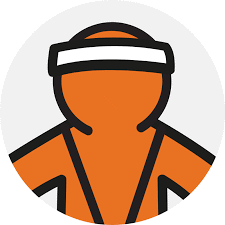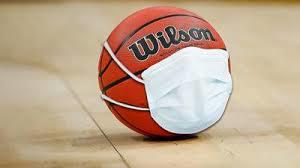Physical Education, School Sport and Physical Activity and the re-opening of schools.

Please note: this advice should be undertaken in conjunction with the guidance on school reopening issued by the Department for Education, and guidance from professional organisations:
AfPe Risk Assessment in PE:
Youth Sport Trust
https://www.youthsporttrust.org/news-insight/research/returning-to-school-after-covid-19
Government guidance relevant to PE:
Sport England
Key Principles shared by The Department for Education underpinning advice on Curriculum planning
- Education is not optional: all pupils receive a high-quality education that promotes their development and prepares them for the opportunities, responsibilities and experiences of later life.
- The curriculum should remain broad, so that the majority of pupils are taught a full range of subjects over the year, including sciences, humanities, the arts, physical education/sport, religious education and relationships and health education
Physical Education is a statutory entitlement as part of this broad and ambitious curriculum, and schools should avoid collapsing this area of provision
Key Messages
- Every school is different – one size does not fit all
- There is a chain of command / communication
1: Government guidance
2: Employer guidance (MAT / LA)
3: School implementation plan
- PE will not be normal - we need to adapt to make it meaningful
- Outdoor sports should be prioritised where possible, and large indoor spaces used where it is not.
- Physical Education and Physical Activity are not the same thing. PE is a statutory entitlement within the taught curriculum, and is needed now more than ever.
Questions for us all
- Have you reviewed your risk assessments for physical education?
- Does your teaching activity meet the Government requirements?
- Are your teaching plans consistent with the requirement of any whole school/employer expectations which may have developed in response to the national guidance?
Key principles for supporting safe PE, School Sport and Physical Activity:
- Clean frequently touched surfaces
- Wash hands frequently as part of a clear hygiene regime
- Minimise contact
- Ensure good respiratory hygiene

Principles that should inform adaptations and planning for Physical Education and School Sport
Learning
- Pupils must stay within their own year group ‘bubble’.
- Specialist PE teachers can work with a number of classes and need not be restricted to set bubbles. This must be risk-assessed, and social distancing regimes must be adhered to rigorously by the teacher.
- Within the year group bubble, classes could be adjusted and reassigned into specialist PE groups. Single sex groups from within the year group would for example be acceptable.
- Examination PE lessons may be taught in KS4 & KS5 to classes from same year group
- Extra-curricular sports activities can be offered, but year groups must not mix within sessions
- Agree what learning is appropriate (including the relationship between face-to-face and remote education), for example, identify curriculum priorities, agree revised expectations and required adjustments in practical lessons, and any approaches to ‘catch up’ support.
- Ensure you have considered the impact on staff and pupils with protected characteristics, including race and disability, in developing your approach.
- Ensure there are appropriate adaptations to enable the safer teaching of skills in isolation in line with cleaning and hygiene regimes.
Protective Measures and Hygiene
- Encourage outdoor PE and sport to support social distancing.
- Students could work in their own zone or ‘safe space’, which may even be marked out for younger children
- What contingency plans are in place for when activities cannot be delivered outside?
- Consider how the curriculum and activity content can reduce minimal setting out of equipment
Changing Areas
- When used, these should be cleaned after every lesson – Wiping of surfaces with an anti-bacterial product is a reasonable approach.
- On PE days, it is recommended that children could attend school already wearing their PE kit (with tracksuit over the top) so limiting the need to use changing rooms.
- Ensure sufficient standard cleaning products (Hand sanitiser / soap & water) is available in all changing areas.
- Social distancing measures still apply and marking out areas which cannot be used will help you to manage the area effectively.
- Consider the impact on lesson timing and lesson procedures for cleaning of changing room surfaces, as well as hand sanitising.
- Considerations need to be given to kit refusers – what procedures will be in place to ‘lend’ kit, or if not applicable to ensure that learning takes place in that lesson.
- Changing rooms, when used, need to have rigid social distancing rules which will affect the capacity of students using them.
PE Clothing (Staff & Students)
- The school will need to agree on modifications/adaptions on clothing expectations. It may be that you would like your students to attend in their PE kit for the whole day on the day when they have a timetabled physical education lesson in order to limit or avoid the use of the changing areas. This is a whole school decision.
- Schools will need to consider where will students leave their belongings?
- Schools may encourage students having back up clothing for when the weather is poor.
- A ‘trainers-only’ approach is a possibility, where students stay in school uniform, but simply change footwear. This does however limit the range of activity and physical exertion from students. Schools will also need to risk assess the uniform (zips, buttons, pockets) and be sensitive to the families who may not have replacement uniforms, so compromising the hygiene of their children when stay in same clothes for several days.
PE Equipment
- Equipment will need to be cleaned between each use. It should be noted that this a whole school issue and all departments/subjects will be facing the same issues so this should be a whole school solution.
- Schools will need to make a decision about which equipment is easier to build into lessons and take into account the cleaning regime at the end of the sessions.
- Hand washing routines will mean more equipment is available to pupils, however it is often easier to plan for and discourage the sharing of equipment that is handled extensively, such as bats, sticks and rackets to mitigate against virus transmission.
- Where any equipment is shared, for example when throwing a ball back to a peer, it is important that the equipment is kept as clean as possible by ensuring it is cleaned before and after each lesson using anti-bacterial cleaning agents provided by your school.
- Consider how the activity choice and programme will allow for the cycling of equipment. Purchase additional resources to enable cycling. Clearly label resources when used by students so they do not mix/share resources extensively. Where additional equipment is purchased to enable this to happen, it is considered a suitable use of any residual unspent Primary PE premium funding from summer 2020.
- Hand washing routines on entry and departure to lesson built into planning and clearly documented for all colleagues and students to understand
Specific Sports and Activities including extra-curricular provision
- Pupils should be kept in consistent groups, sports equipment should be thoroughly cleaned between each use by different individual groups, and the contact aspect managed in line with the respective sport’s own governing body’s advice.
- Swimming is permissible, and the chlorination of pool water possibly mitigates against covid-19 transmission. The wider protective measures around the pool-side, changing rooms, and transport need to be rigorously planned. Comprehensive guidance is available from Swim England about the reintegration to school swimming
- Sports whose national governing bodies have developed guidance under the principles of the government’s guidance on team sport and been approved by the government are permitted. Schools must only provide team sports on the list available at return to recreational team sport framework. There is robust guidance from Sport England for grass-root sport as well, and schools should refer to the guidance produced by the respective sports’ governing bodies.
- Schools can provide extra-curricular activities where they are satisfied that it is safe to do so. Schools can work with external coaches, clubs and organisations to facilitate this, but must consider carefully how such arrangements can operate within their wider protective measures
- There is no obligation to engage in fixtures, and schools should carry out a thorough risk assessment considering the implications and whether a fixture can be practically and safely carried out in the context of other considerations,such as restrictions on transport. afPE’s position at the current time is that school fixtures should be avoided, as this will involve contact across schools, and increase the opportunities for virus transmission.
Routines and Procedures
- Pay scrupulous attention to cleaning and hygiene.
- Opportunities for hand-washing before and after the lesson must be available.
- Hand sanitiser should be readily available for students to use during PE lessons
- Procedures for students’ arrival (and registration) in the PE space must be planned and understood. Similarly procedures for what happen at the end of the lesson must be robust?
Download the information from this page
Covid PE November 2020170KB–pdf
Size: 170KBFile format: pdf
For further advice about PE, Physical Activity & School Sport
Ian Roberts – Specialist Adviser for PE & School Sport
Ian.roberts@cambridgeshire.gov.uk
01480-379077 / 079795384

